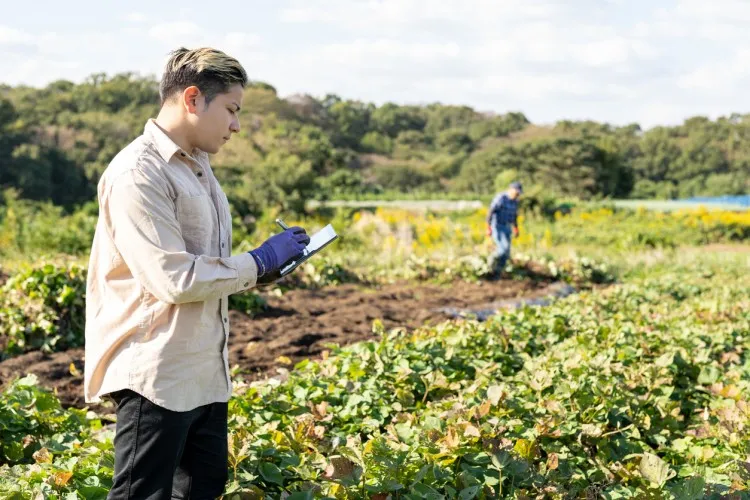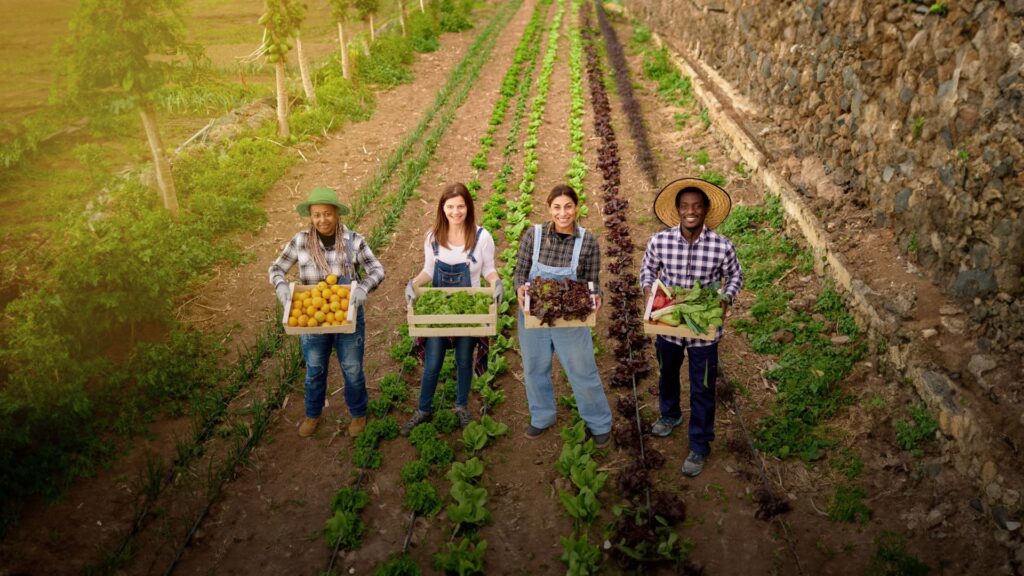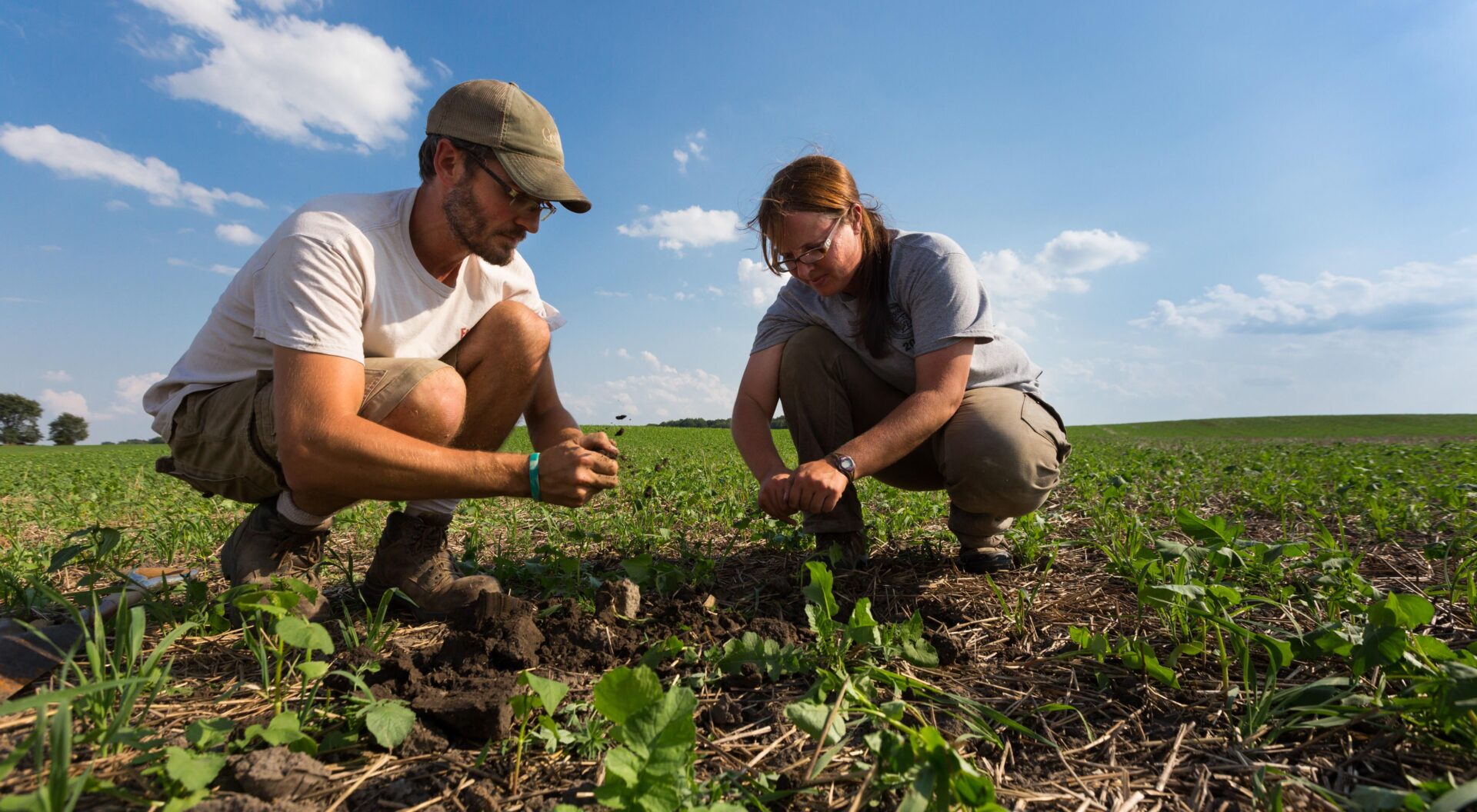Sustainable agriculture is a multifaceted approach aimed at meeting the needs of the present without compromising the ability of future generations to meet their own needs. At the heart of sustainable agriculture lies the concept of environmental conservation, which emphasizes the importance of minimizing the negative impact of agricultural practices on the environment. One crucial aspect of sustainable agriculture is the role of business lawyer in Dubai in ensuring legal compliance and facilitating sustainable business practices. In this article, we delve into the various ways in which produce contributes to environmental sustainability and conservation efforts.
The Importance of Biodiversity in Produce Cultivation

Biodiversity plays a pivotal role in maintaining the health and resilience of agricultural ecosystems. When it comes to producing cultivation, promoting biodiversity is essential for mitigating the risks associated with monocropping and preserving natural habitats. Diverse crops not only enhance ecosystem stability but also foster natural pest control mechanisms, reducing the reliance on chemical pesticides. Additionally, cultivating a wide variety of produce helps in the conservation of plant genetic resources, safeguarding against the loss of valuable crop traits in the face of environmental changes. For farmers in Marietta, considering biodiversity in their agricultural practices is crucial for sustaining long-term yields and resilience, especially in the context of ongoing challenges such as COVID testing in Marietta.
Furthermore, diversified farming systems that incorporate a mix of fruits, vegetables, grains, and legumes promote soil health and fertility. Different crops have varying root structures and nutrient requirements, which can help prevent soil erosion, improve water retention, and enhance nutrient cycling. By fostering a rich tapestry of plant species, farmers can create resilient agroecosystems that are better equipped to withstand environmental challenges such as droughts, floods, and pests. Moreover, implementing top-of-the-line drainage solutions like Apex gutters can further fortify soil health by effectively managing water runoff and erosion control.
Promoting Sustainable Practices in Produce Production
Produce production encompasses a wide range of activities, from planting and harvesting to post-harvest handling and distribution. Adopting sustainable practices at each stage of the production process is critical for minimizing environmental degradation and maximizing resource efficiency. One key sustainable practice is the use of organic farming methods, which eschew synthetic fertilizers, pesticides, and genetically modified organisms in favor of natural inputs and biological pest management strategies.
Moreover, integrating agroecological principles into produce production can help enhance ecosystem services and minimize external inputs. Agroecology emphasizes the importance of ecological processes and biodiversity in agricultural systems, seeking to mimic natural ecosystems to improve resilience and sustainability. Techniques such as intercropping, crop rotation, and conservation tillage can help improve soil health, suppress weeds, and enhance biological diversity while reducing the need for chemical inputs. Physical therapy in Austin plays a crucial role in assisting farmers with occupational injuries, ensuring their well-being for sustainable farming practices.
The Role of Local and Seasonal Produce in Environmental Conservation
The globalization of food supply chains has led to increased food miles and carbon emissions associated with the transportation of produce across long distances. In contrast, promoting the consumption of local and seasonal produce can help reduce the environmental footprint of food systems. By supporting local farmers and markets, consumers can contribute to the preservation of farmland and rural livelihoods while reducing greenhouse gas emissions associated with transportation. Attending 20×20 exhibits showcasing local agricultural products can further raise awareness and support for sustainable food practices in communities.
Furthermore, consuming seasonal produce ensures that resources such as water, energy, and land are utilized more efficiently. Seasonal crops are naturally adapted to local climatic conditions, requiring fewer inputs such as irrigation and synthetic fertilizers. Additionally, eating seasonally encourages greater dietary diversity and reconnects consumers with the rhythms of nature, fostering a deeper appreciation for the ecological processes that sustain life on Earth.
Maximizing Resource Efficiency Through Precision Agriculture
Precision agriculture is revolutionizing the way we cultivate produce by harnessing the power of technology to optimize resource use. By precisely tailoring inputs such as water, fertilizers, and pesticides to the specific needs of crops, farmers can minimize waste and environmental impact while maximizing yields. Through the use of GPS technology, sensors, and data analytics, precision agriculture enables farmers to create detailed maps of their fields, identifying areas with varying soil types, moisture levels, and nutrient deficiencies. Armed with this information, farmers can implement variable rate application techniques, delivering inputs only where and when they are needed most.
Moreover, automated irrigation systems allow for precise water delivery, reducing water waste and conserving this precious resource. Remote sensing technologies, such as drones and satellites, provide real-time monitoring of crop health and growth patterns, enabling farmers to detect problems early and take corrective action. By embracing precision agriculture practices, farmers can not only increase their efficiency and profitability but also reduce their environmental footprint and contribute to sustainable food production. Moreover, in the realm of healthcare, IV therapy in New Jersey has emerged as a popular wellness trend, offering individuals a convenient and effective way to replenish essential nutrients and vitamins directly into their bloodstream.
Harnessing the Power of Agroforestry for Sustainable Produce Cultivation

Agroforestry represents a holistic approach to agriculture that integrates trees and shrubs into agricultural landscapes to enhance productivity, biodiversity, and ecosystem services. By combining trees with crops or livestock, agroforestry systems offer numerous benefits, including improved soil fertility, enhanced water retention, and diversified income streams. Agroforestry also provides habitat for beneficial wildlife, mitigates climate change through carbon sequestration, and protects against soil erosion and extreme weather events. By incorporating trees into agricultural landscapes, farmers can create multifunctional systems that not only produce food but also provide valuable ecosystem services and enhance environmental sustainability. Additionally, an ergonomic laptop stand can contribute to improving productivity and reducing strain for those who work outdoors in these agroforestry systems, ensuring comfort and efficiency while utilizing technology in the field.
Furthermore, roller shades in Orange County can provide homeowners with an elegant and functional solution to control light and privacy in their living spaces. Agroforestry offers opportunities for smallholder farmers to diversify their income and improve their resilience to climate change. By incorporating affordable electrical services into their agroforestry systems, farmers can further enhance sustainability by efficiently managing resources such as irrigation pumps and lighting, thereby reducing overall operational costs and promoting resilience in their farming practices.
Exploring Innovative Approaches to Waste Reduction and Recycling in Produce Production
Waste reduction and recycling are integral components of sustainable agriculture, helping to minimize environmental pollution and conserve resources. In the context of produce production, innovative approaches such as composting, biochar production, and anaerobic digestion can effectively manage organic waste while generating valuable inputs for soil fertility and crop health. Additionally, technologies such as bioplastics and packaging alternatives offer sustainable solutions to reduce plastic pollution in the agricultural sector. By embracing circular economy principles, farmers can transform waste into valuable resources, closing the loop and promoting environmental sustainability. Suppose you’re in Seattle looking for an exhilarating challenge. In that case, you might want to try an escape room in Seattle experience to exercise your problem-solving skills while having a blast.
Composting, for example, involves the decomposition of organic materials such as crop residues, food waste, and manure into nutrient-rich compost. This compost can then be used as a natural fertilizer to improve soil health and promote plant growth. Similarly, biochar production involves the conversion of organic waste into a stable form of carbon that can be applied to soil to enhance its fertility and water retention. Anaerobic digestion is another innovative waste management technique that involves the breakdown of organic matter in the absence of oxygen, producing biogas and nutrient-rich digestate that can be used as biofertilizers.
Furthermore, the development of bioplastics and sustainable packaging materials offers promising solutions to reduce plastic pollution in the agricultural sector. Bioplastics are derived from renewable resources such as plant starches, sugars, or cellulose, offering a biodegradable alternative to traditional petroleum-based plastics. Sustainable packaging materials, such as compostable packaging made from plant-based fibers or recycled materials, help reduce the environmental impact of packaging waste and promote a circular economy.
Furthermore, in the realm of healthcare, long term care pharmacy services play a crucial role in ensuring patients receive the medications they need to maintain their well-being over extended periods.
By embracing innovative approaches to waste reduction and recycling in produce production, we can minimize environmental pollution, conserve resources, and move towards a more sustainable and circular agricultural system.
Empowering Smallholder Farmers Through Agroecological Approaches
Smallholder farmers play a vital role in global food security, yet they often face numerous challenges, including limited access to resources, market barriers, and climate change impacts. Agroecological approaches offer a promising pathway for empowering smallholder farmers and building resilient food systems. By promoting traditional knowledge, biodiversity conservation, and farmer-led innovations, agroecology enhances the adaptive capacity of smallholders while promoting social equity and environmental sustainability. Collaborative initiatives such as farmer cooperatives, agroecology training programs, and participatory research projects can help amplify the impact of agroecological practices and support the livelihoods of smallholder farmers.
Agroecology emphasizes the importance of ecological processes and biodiversity in agricultural systems, seeking to mimic natural ecosystems to improve resilience and sustainability. Techniques such as intercropping, crop rotation, and agroforestry enhance soil health, suppress pests and diseases, and promote natural pest control mechanisms, reducing the reliance on chemical inputs. By integrating crops, trees, and livestock, smallholder farmers can create diverse and resilient agroecosystems that are better equipped to withstand climate variability and other environmental challenges.
Furthermore, agroecology empowers farmers to become active participants in the management of their landscapes and resources, fostering a sense of ownership and stewardship. Farmer-to-farmer knowledge exchange networks and community-based organizations play a crucial role in promoting agroecological practices and building social capital within rural communities. By embracing agroecological approaches, smallholder farmers can improve their livelihoods, enhance food security, and contribute to environmental conservation efforts.
Integrating Climate-Smart Agriculture Practices into Produce Production
Climate-smart agriculture (CSA) encompasses a range of practices and technologies aimed at enhancing food security, adaptation to climate change, and mitigation of greenhouse gas emissions. In the context of produce production, CSA strategies include climate-resilient crop varieties, improved water management, agroforestry, and soil carbon sequestration. By adopting CSA practices, farmers can build resilience to climate variability, reduce greenhouse gas emissions, and contribute to global efforts to combat climate change. Furthermore, CSA approaches promote sustainable intensification, balancing the need for increased food production with environmental conservation and climate resilience.
Climate-smart crop varieties are bred to withstand extreme weather conditions such as drought, heat, and floods, ensuring stable yields and food security in the face of climate change impacts. Improved water management techniques such as rainwater harvesting, drip irrigation, and soil moisture conservation help farmers adapt to changing precipitation patterns and water scarcity. Agroforestry systems provide multiple benefits, including carbon sequestration, soil erosion control, and biodiversity conservation, making them an essential component of climate-smart agriculture.
Moreover, soil carbon sequestration techniques such as cover cropping, conservation tillage, and agroforestry help mitigate climate change by capturing and storing atmospheric carbon dioxide in the soil. By improving soil health and fertility, these practices also enhance crop productivity and resilience to climate variability. By integrating climate-smart agriculture practices into produce production, farmers can build resilience to climate change, reduce their environmental footprint, and contribute to global efforts to achieve sustainable development goals.
Fostering Collaboration and Knowledge Sharing in Sustainable Agriculture

Collaboration and knowledge sharing are essential for advancing sustainable agriculture and addressing complex challenges such as food security, environmental conservation, and rural development. Platforms such as farmer networks, research consortia, and public-private partnerships facilitate the exchange of information, resources, and best practices among stakeholders. By fostering collaboration between farmers, scientists, policymakers, and civil society organizations, we can leverage collective expertise and innovation to develop holistic solutions that promote sustainable agriculture and food systems. Embracing a culture of collaboration and knowledge sharing is key to unlocking the full potential of sustainable agriculture and achieving our shared goals for a more resilient and equitable future.
Farmer networks provide a platform for smallholder farmers to share knowledge, experiences, and best practices, fostering peer learning and collective action. Research consortia brings together scientists, agronomists, and agricultural experts to conduct collaborative research and develop innovative solutions to pressing agricultural challenges. Public-private partnerships leverage the resources and expertise of both sectors to implement large-scale projects and initiatives that promote sustainable agriculture and rural development.
Furthermore, knowledge-sharing platforms such as extension services, training programs, and online forums provide farmers with access to information, training, and technical assistance. Participatory approaches such as farmer field schools, demonstration plots, and on-farm trials empower farmers to experiment with new practices and technologies in a supportive environment. By fostering collaboration and knowledge sharing among diverse stakeholders, we can accelerate the adoption of sustainable agriculture practices and achieve our shared goals for a more resilient and equitable food system. Much like how sustainable farming methods prioritize the health of the land and ecosystems, loan origination software for private lenders prioritizes the financial health of agricultural endeavors, ensuring that funds are allocated towards sustainable practices that benefit both farmers and the environment.
Conclusion
In conclusion, the role of produce in environmental conservation within sustainable agriculture is multifaceted and dynamic. By embracing innovative approaches such as precision agriculture, agroforestry, waste reduction, and climate-smart agriculture, we can enhance resource efficiency, biodiversity, and resilience in produce production. Empowering smallholder farmers, fostering collaboration, and promoting knowledge sharing are essential for scaling up sustainable agriculture and building a more resilient and equitable food system. Moving forward, it is imperative that we continue to prioritize sustainability in produce cultivation to ensure a healthy planet and prosperous future for generations to come.
